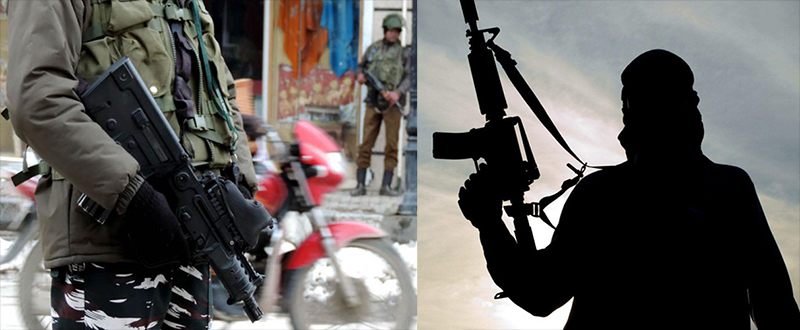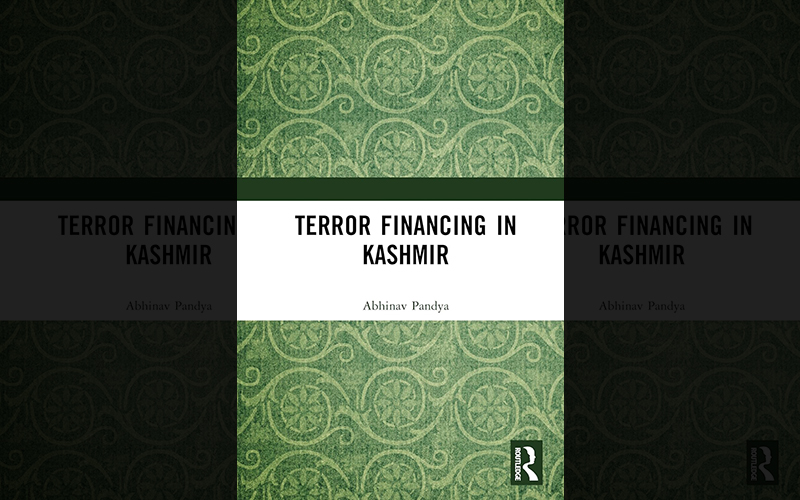New book on Kashmir militancy lays bare the web on terror financing

A new book by a geopolitical expert has laid bare the layered and complex web of terror financing in Kashmir, which is a bone of contention between South Asia's two nuclear armed neighbours- India and Pakistan.
'Terror Financing in Kashmir' by counterterrorism policy analyst Dr. Abhinav Pandya, who is a Cornell University graduate in public affairs, and a bachelor's from St. Stephen’s College, Delhi, is available now online and on bookstores.
The founder and Director and CEO of Usanas Foundation, India-based security, and foreign policy think tank, in his latest book examines the role of multiple actors — including formal and informal, state and non-state, profit and non-profit, and local and international — to delineate the various strands of an intricate financial system.
It shows how, over time, these sophisticated networks have largely remained elusive to Indian counter-terrorism agencies and that there is a need for a specialised and focused effort to understand it.
Drawing on interviews with confidential sources within terror networks, as well as inputs and intel from security agencies on the ground, the author lays in the book the groundwork for a robust counter-terrorism strategy in Kashmir.
According to geopolitical and terrorism observers, the book will be a must read for professionals and researchers in security studies, military and strategic studies, politics and international relations, and South Asian studies.

"Since the formal beginning of a violent separatist and Islamist insurgency in 1990, Pakistan has created a highly complex, sophisticated, and layered system of terror financing. However, this subject has so far eluded the watchful eyes of the global counter-terrorism community," said the author.
"Kashmir’s terror financing landscape presents a classic example of how sustained efforts of three-plus decades in running Islamist militancy have successfully created a highly evolved structure and mechanism of terror funding, ensuring that the sinews of the insurgency ecosystem are not only held intact but strengthened in such a manner to be self-sustaining," he added.
He said over time, the terror masterminds have devised new ways and investment fronts to sustain separatism and militancy.
"As the system evolved in complexity and scale, more investment followed for running separatist media, think tanks, organizing stone-pelting and protests, funding political parties and sustaining assets in police, administration, and judiciary, sustaining Islamist organizations like Jamaat-i-Islami, universities, schools, coaching centers, foreign trips of journalists and activists, information and narrative war," he added.
"Another interesting feature of terror financing that emerged in Kashmir was the major involvement of mainstream institutions of politics, administration, banking, academics, and media in the terror financing dragnet. Mainstream institutions, in fact, became a crucial part of this illegal system," added Dr. Pandya.




